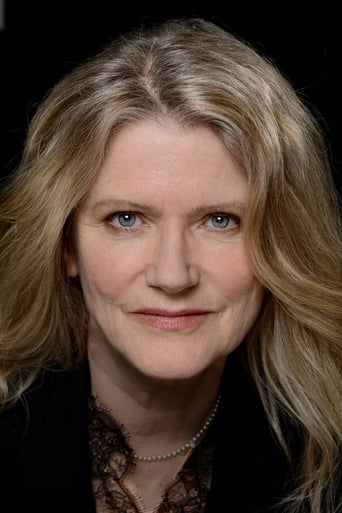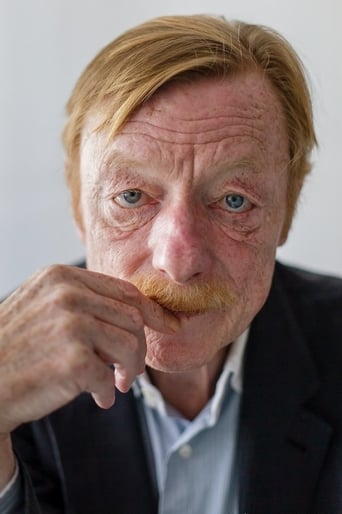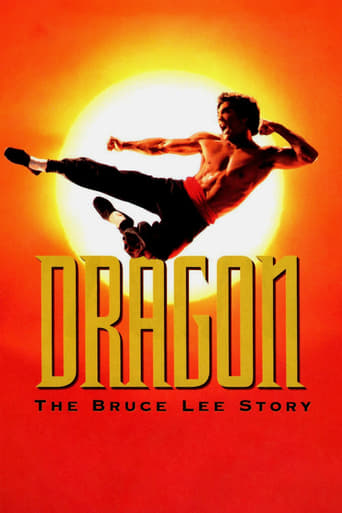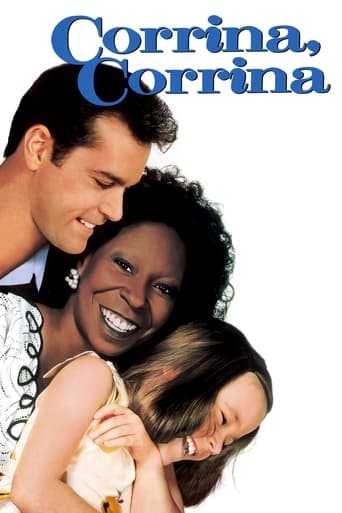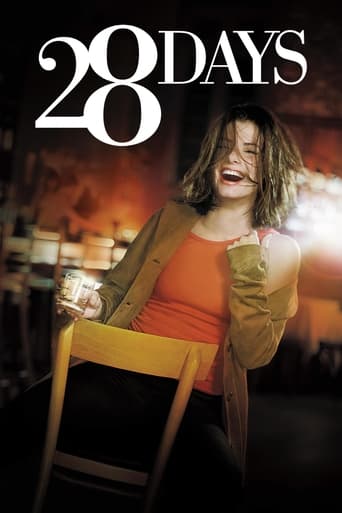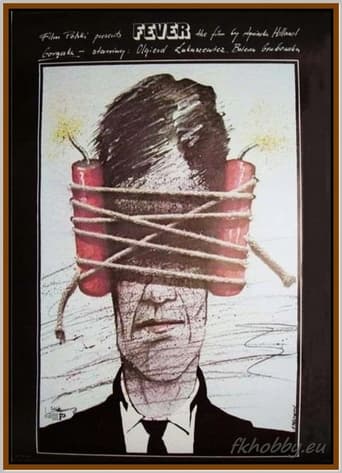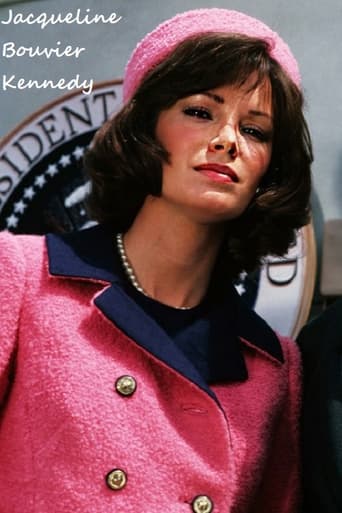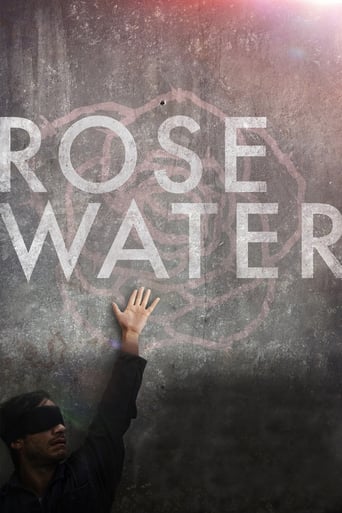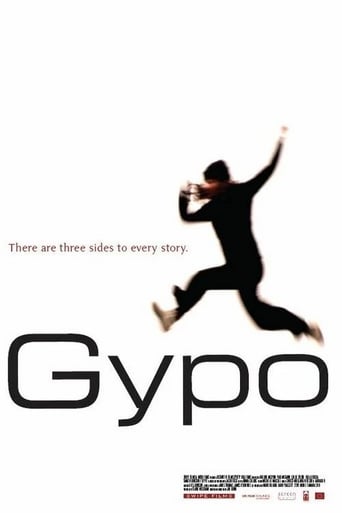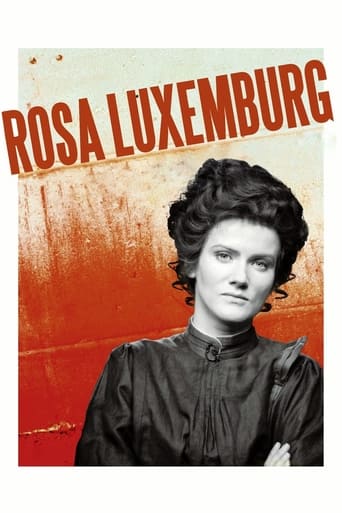
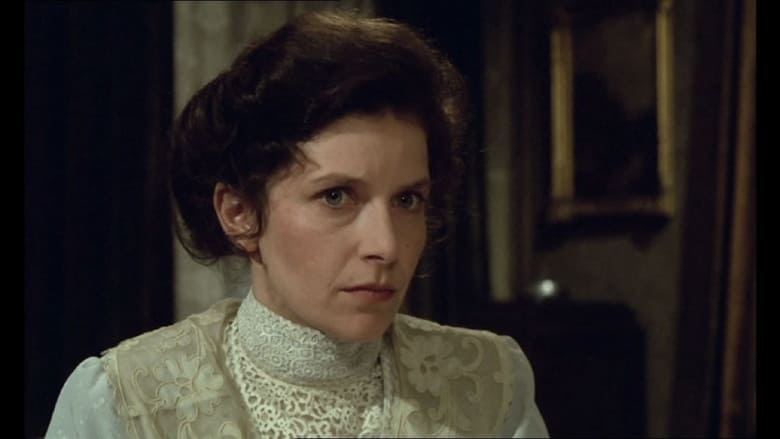
Rosa Luxemburg (1986)
Polish socialist and Marxist Rosa Luxemburg works tirelessly in the service of revolution in early 20th century Poland and Germany. While Luxemburg campaigns for her beliefs, she is repeatedly imprisoned as she forms the Spartacist League offering a new vision for Germany.
Watch Trailer
Cast
Similar titles
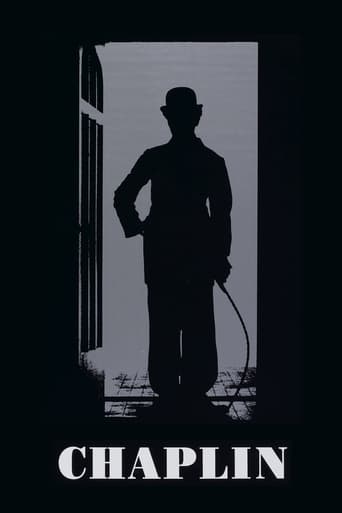

Reviews
the audience applauded
Tells a fascinating and unsettling true story, and does so well, without pretending to have all the answers.
There's no way I can possibly love it entirely but I just think its ridiculously bad, but enjoyable at the same time.
It is neither dumb nor smart enough to be fun, and spends way too much time with its boring human characters.
"Rosa Luxemburg" is probably one of the most interesting and controversial characters in German history and here she gets her tribute movie. Initially, Rainer Werner Fassbinder was intended to make this one with Jane Fonda playing the title character, but as we all know he died prematurely and Margarete von Trotta took over with Helena Sukowa playing the main part. Both got a fair share of awards recognition (probably worked on several other projects together because of that) and the movie also won Best Film at the German Film Awards roughly 30 years ago. It was not the right decision I guess. I am not a great fan of Sukowa I must say, but she is bearable in here. I remember her being downright bad as Hannah Arendt recently, but in this much older work here, she is solid for the most part. She does not bring any greatness that could justify her awards for this work, not at all, but at least she kept herself from constantly going over the top, so that there were only a few cringeworthy moments involving her acting. But I also think, she does not prove she has particularly great range and this mediocre lead performance cost the film a lot as she is basically in every scene.Then, you have to say in her favor that von Trotta's script isn't really up to the challenge either. There are good moments, but as a whole it simply is not enough for a movie that almost runs for 2 hours. This is particularly disappointing as Rosa Luxemburg really would have deserved a lead actress with more talent and consequently a movie with better quality. I guess we have to live with that for now. I may be a bit biased here as the years before 1933 in the 20th century, even as a German citizen, never felt that interesting to me as I hoped they would be, but I also need to state that this film here did not succeed in sparkling my interest. There were many moments during which the film dragged and it lacked consistency in convincing storytelling. The duo von Trotta / Sukowa is one that still has to impress me. This one not being as bad as the previously mentioned Hannah Arendt will not cut the cake. It is a missed opportunity and I do not recommend the watch.
German screenwriter, film professor, producer and director Margarethe Von Trotta's sixth feature film which she wrote, is inspired by the life of a renowned Polish-German-Jewish 19th and 20th century author, philosopher, economist and editor. It premiered in West Germany, was screened In competition at the 39th Cannes International Film Festival in 1986, was shot on locations in West Germany and Czechoslovakia and is a West Germany-Czechoslovakia co-production which was produced by producers Eberhard Junkersdorf and Regina Ziegler. It tells the story about a daughter, sister, friend and Polish and German citizen who was born in Zamość, Poland into Congress Poland (1815-1915) then a part of Tsarist Russia (1721-1917), during the German Empire (1871-1919) when a German state called Prussia (1525-1947) had a King and Emperor named William Friedrich Ludwig (1831-1888) and a Queen and Empress named Augusta Marie Luise Katharina (1811-1890), the same year as the Unification of Germany in the Mirror Hall at the Palace of Versailles in France, the initiation of the Paris Commune, the birth of a German attorney and political theorist named Karl Liebknecht (1871-1919), a Belgian philology professor and journalist named Camille Huysmans (1871-1968), the establishment of the Social Democrats in Denmark, seven years before an international congress in Paris, France, thirteen years before an English-German-Jewish schoolteacher named Eleanor Marx (1855-1898) joined a political party called the Social Democratic Federation (1881-1911) and less than a century after the French Revolution (1789-1799). Distinctly and precisely directed by German filmmaker Margarethe von Trotta, this quietly paced fictional tale which is narrated by and mostly from the main character's point of view, draws a reflective and humane portrayal of an inquisitive political theoretician and lecturer who opposed all forms of autocracy, war and absolutism, was called Red Rosa, Bloody Rosa and stateless by her prosecutors, who forty-nine years after the birth of a Norwegian-Jewish daughter named Cissi Pera Klein (1929-1943) began studying at Warsaw's Second Gymnasium for Girls as a nine-year-old where daughters of soldiers were favored and she was hierarchically degraded due to her origins and prohibited from speaking her inherent language, as a ten-year-old witnessed a pogrom, as a fifteen-year-old became a member of the Proletariat Party of Poland (1882-1886) and in the late 19th century as an eighteen-year-old exiled to Zürich, Switzerland where she began studying state science at the University of Zürich where a German women's rights advocate named Anita Augsprung (1857-1953) was studying. While notable for its atmospheric milieu depictions, reverent cinematography by cinematographer Fritz Rath and production design by production designers Bernd Lepel and Stephan Exner, this dialog-driven and narrative-driven story about political history recognizes a praised, criticized, dedicated and multilingual person of letters who liked music, painting and botany, who was raised as the youngest of five siblings by her father named Eliasz Luxemburg and her mother named Lina Löwenstein and who once authored: "This above all confers to the title of letter-writer."Envisaging real events from the lifetime of an influential thinker, lover, speaker at assemblies, frequent prisoner and writer of articles, letters, leaflets and critiques with the pen name Junius who as a twenty-two-year-old started a newspaper called Worker's Cause with a Lithuanian émigré, editor and politician named Leo Jogiches (1867-1919), as a twenty-seven-year-old became a Doctor of Public Law and Political Science, moved to Germany where she became a member of the Social Democratic Party of Germany and befriended a German author, teacher and lecturer named Clara Zetkin (1858-1933) who in the early 1900s in London, England presented the case for universal equal suffrage for women during a demonstration, as a thirty-year-old had experienced the passing of her parents, as a thirty-two-year-old entered a marriage of convenience, in 1906 was released from a Polish prison and as a forty-three-year-old founded an underground journal which developed into the Spartacus League (1915-1918), which was made six years before a then twenty-eight-year-old American singer and pianist sang the following words on a stage in Montreaux, Switzerland: "It was me and a gun and a man on my back ", more than a century after the birth of a German teacher named Käte Duncker (1871-1953) and a German poet named Louise Otto (1819-1895) and two centuries after an English 18th century author and teacher named Mary Wollstonecraft (1757-1797) created a boarding school for girls, depicts an abridged study of character and contains a great and timely score by composer Nicolas Economou.This densely biographical, historic and heartfelt reconstruction from the late 1980s which is set mostly in Poland and Germany during the First World War (1914-1918) and where a versatile precursor and insurgent who initiated a daily paper called The Red Flag in Berlin, Germany in 1918 as a forty-seven-year-old, was murdered by a German navy official the same year as the introduction of the Weimar Republic (1919-1933), twenty-one years after an officer accused of treason in the Dreyfus Affair (1896-1906), was convicted to life imprisonment and relocated to a place called Devil's Island, twenty-nine years after the proletarian women's movement made a magazine called Equality (1890-1925), eleven years after women in Germany gained the right to participate in politics, fifty years before the then East Germany government named a place in Berlin-Mitte, Germany The Rosa Luxemburg Square, who as a thirteen-year-old student wrote: "At last we shall see you, ruler of the west, or that is if you come to Saxony Garden, as I will not be visiting your court...", whose life underlines the ingeniousness of a three-letter Latin and seven-letter German word and who as a five-year-old human being with a name signifying a rose learned the art of reading and writing, is impelled and reinforced by its fragmented narrative structure, subtle character development and continuity, use of archival footage and the virtuous acting performance by German actress Barbara Sukowa. A lyrically memorializing narrative feature.
The lives of famous politicians are rarely the subject of a film, even though their decisions may have had a large influence on daily life, and in the case of wars even on death. Left-wing politicians are the favorites of film directors, not only because of their often interesting (creative and emotional) characters, but also in order to moderate and sometimes destroy the myth. Margarethe von Trotta has done justice to Rosa Luxemburg (1871-1919) in this film about her last twenty years. As a director she thank God refuses to take sides. Some knowledge concerning the historical backgrounds of the story will add to your enjoyment of the film. You might consider reading the friendly book "Gedenksteen voor Rosa" by the Flemish writer Achilles Mussche. Luxemburg was a legendary socialist leader with a revolutionary inclination. Just to give you a taste of the themes that await you: she recommends the political mass strike, an interesting idea which unfortunately can rarely be realized since the people themselves are the first victims. Although she originated from Poland, where she belonged to the upper middle class, she became a distinguished member of the powerful and massive German SPD workers-party. Later the Bolsheviks have presented her as one of their forerunners, but her ideas remain appreciated by social-democrats, since she never embraced dictatorship, and kept a critical distance towards Lenin. The film shows her life in the little biotope of all the contemporary party bosses and their families, among others Bebel, Kautsky, Karl Liebknecht, and Clara Zetkin, discussing society over a glass of good wine. Sometimes we see her association with the working class, during lectures and agitations. The film hints at her job as a productive journalist, and (being a versatile woman) her scientific ambitions. We get a taste of the puffed up ideological utopianism, which was so typical of a part of the intellectual middle-class social-democrats. Such extremist ideas blossomed naturally as a result of their permanent predicament of intimidation, persecution, imprisonment, and (for Luxemburg) exile, that was imposed by the corrupted state. unfulfilled personal ambitions are an additional cause. On the private level her intimate relationship with a Polish revolutionary is represented, as well as her final romance with a barely grown-up. In many ways her last final years lead to a climax. It was the period of the First World War, which in Germany had extreme consequences. During the war she was once again imprisoned for political reasons. Freedom has its limits even in capitalism. Then in 1918 after the defeat of Germany a proletarian revolution changed the empire into a republic. The socialist SPD played an eminent role in the upsurge, together with the left-wing secession USPD (a few years later they merged). Luxemburg (together with Liebknecht) had shifted to the extreme left-wing, into the sectarian Spartakus movement, with high ambitions. In word and deed she advocated that the social-democrats should cling to their newly conquered rule. In my opinion, and I am pretty knowledgeable on the subject, her plan would have created a civil war, which would have further aggravated the situation of the people. I would say that her final actions were highly questionable and perhaps irresponsible, however, some think otherwise, so judge for yourself. Anyway, she was freed, and in those first months of 1919 supported the armed resistance of workers, even when it continued after the successful proletarian revolution, mainly in Berlin. Finally she was arrested and shot on the spot by a Prussian Officer, together with Karl Liebknecht. On a higher level the social-democrat Noske, then minister in the social-democrat interim government, is commonly held accountable for these murders. The film gives an impressive overall description of the period, but you must appreciate the revolutionary atmosphere, caused by the persecutions and finally the horrid and superfluous war, otherwise the fierce dialogs and debates may deter you. Her premature death made her into a martyr, in the same league as Che Guevara. Like him, she must have been rather good-looking, more than the actress Barbara Sukowa, which also helps.
"Rosa Luxemburg" is an inspiring and powerful portrait of Luxemburg, a Polish-German activist and Socialist/Communist who lived from 1872-1919. She was murdered during the unsuccessful Spartacist rebellion in Germany, right after Germany's defeat in World War I.I don't know much about Luxemburg, but as the film portrays her, she was a very forceful, compassionate, and strident devotee of peace and justice for the working class. She was a member of the Socialist Democratic Party in Germany, and she also spent some time in her native Poland. Apparently she was also Jewish. Her longtime lover and working companion was also a Socialist writer who was Polish."Rosa Luxemburg" follows many of the major events in Rosa's life. We see her giving speeches, writing articles, and pressing the Socialist Democratic party elders for quicker movements toward "revolution." Ultimately, Rosa wanted an overthrow of the "old order," meaning the monarchic/industrial/fascist forces, and direct control of the political system by the workers themselves. She did not advocate violent means to do this, but nevertheless was painted as a dangerous radical and was thrown in jail nine times.I enjoyed this film immensely and found it sad but extremely important. Viewers who enjoy this film might also check out "The Burning Season," "Entertaining Angels," and "Daens."
